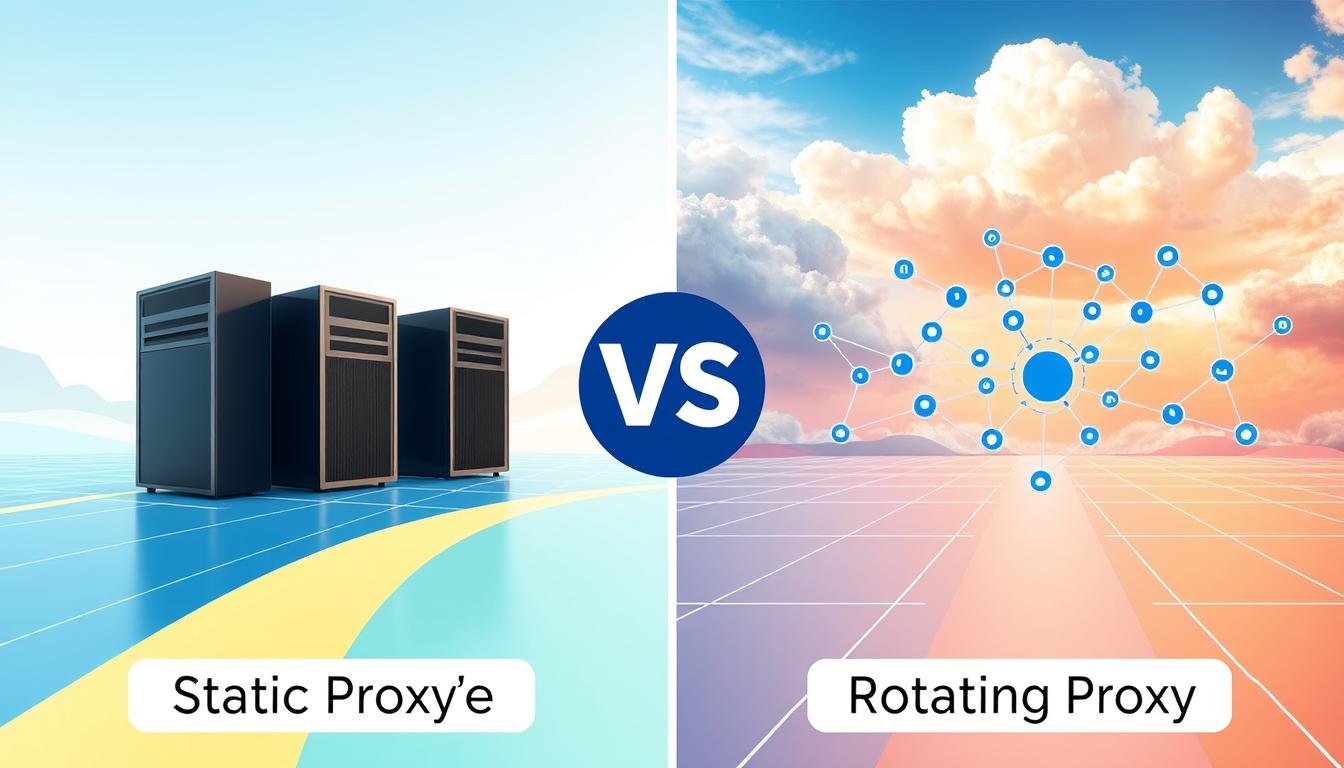FTC disclaimer: This post contains affiliate links and I will be compensated if you make a purchase after clicking on my link.
Are you finding it hard to meet your customers’ needs? The right call center software could change your customer service game. But, with so many choices, picking the best for your business is tough.
In this detailed guide, we’ll look at the top call center software providers. We’ll cover their features and prices to help you find the perfect match for your team. Whether you need inbound call center software, outbound call center software, or an omnichannel contact center platform, we’ve got you covered.
Key Takeaways
- Discover the essential features to look for in call center software, including omnichannel communication, interactive voice response (IVR), and advanced analytics and reporting.
- Understand the differences between cloud-based, on-premise, and hosted call center software to determine the best deployment option for your business.
- Explore the top call center software providers, such as Sprinklr, Zendesk, and NICE CXone, and learn about their unique capabilities and pricing structures.
- Gain insights on when to migrate from call center software to contact center solutions and how to navigate the transition seamlessly.
- Uncover the latest industry trends and best practices to ensure your customer service operations stay ahead of the curve.
What is Call Center Software?
Call center software helps businesses improve their phone support. It makes talking to customers easier and faster. It has features like IVR, CRM, and real-time monitoring.
Many companies use this software. They want better call handling, lower costs, and more data. It also helps them follow rules and keep quality high.
Using call center technology has many benefits:
- Customers get better service and problems are solved quicker.
- Agents work more efficiently with automated tools.
- Businesses make better decisions with data.
- It works well with other software, like CRMs.
- It grows with your business, handling more calls.
Call center software turns phone support into a key advantage. It boosts customer happiness, loyalty, and sales.
| Call Center Software Provider | Pricing | Key Features |
|---|---|---|
| Zendesk | Starting at $19 per agent/month, billed annually, with a 14-day free trial | Omnichannel support, IVR, call routing, call monitoring and recording, analytics and reporting |
| LiveAgent | Paid plans starting at $9 per month for three accounts, billed annually, with a free plan and 14- and 30-day free trials | Automated call distribution (ACD), CRM integration, knowledge base, live chat, and social media integration |
| Dialpad AI Contact Center | Plans starting at $80 per user/month, billed annually, with a 14-day free trial | AI-powered call analytics, CRM integration, virtual agents, and real-time transcription |
Investing in good call center software improves customer service. It makes agents work better and keeps customers happy.

Types of Call Center Platforms
There are many types of call center software to choose from. Each has its own benefits and drawbacks. Knowing the differences is key to finding the right one for your business.
On-Premises Call Center Software
On-premises software is installed in your own space. It offers customization and control but costs a lot upfront. You also need to handle maintenance and IT support.
Virtual Call Center
A virtual call center lets your team work from anywhere. It’s flexible and saves money. But, managing a team remotely can be tough.
Hosted Call Center Software
Hosted software is cloud-based and easy to access. It saves money by not needing hardware or IT support. But, customization options might be limited.
Inbound Call Center Software
Inbound software is for handling customer support and inquiries. It makes both agents and clients happy. It has features like IVR and advanced reporting.
Outbound Call Center Software
Outbound software is for proactive outreach like sales and surveys. It has tools like predictive dialing and CRM integration.
Choosing the right call center platform is important. You need to think about your needs, budget, and future plans. By knowing the different types, you can pick the best one for your business.

| Call Center Platform | Key Features | Deployment Model | Best Suited For |
|---|---|---|---|
| On-Premises Call Center Software |
| On-site infrastructure | Enterprises with specific requirements and IT resources |
| Virtual Call Center |
| Cloud-based | Businesses with distributed teams and the need for geographic flexibility |
| Hosted Call Center Software |
| Cloud-based | Small to medium-sized businesses with limited IT resources |
| Inbound Call Center Software |
| On-premises or cloud-based | Organizations focused on providing exceptional customer support |
| Outbound Call Center Software |
| On-premises or cloud-based | Businesses engaged in proactive outreach, such as sales and surveys |
Understanding the different call center platforms helps you make a smart choice. Whether you need on-premise, cloud-based, or virtual software, knowing your options is key.
Essential Features to Consider
When looking at call center software, it’s key to think about important features. These include omnichannel communication, Interactive Voice Response (IVR), Automatic Call Distribution (ACD), call routing, call monitoring and recording, and analytics and reporting.
Omnichannel Communication
Omnichannel communication lets customers reach out in their favorite ways. This includes phone, email, and even social media. It makes sure every interaction is smooth and personal, boosting customer happiness and loyalty.
Interactive Voice Response (IVR)
An IVR system helps manage calls by offering menus. This makes it easier for customers to get help quickly. It also lets agents focus on harder questions. Some IVR systems use artificial intelligence (AI) for smarter answers.
Automatic Call Distribution (ACD)
ACD software directs calls to the best agent or team. It looks at who’s free, their skills, and how urgent the call is. This means customers get the right help right away, making things more efficient and better for everyone.
Call Monitoring and Recording
Monitoring and recording calls helps check how agents are doing. It spots areas for training and makes sure rules are followed. It also helps understand what customers say, giving insights to make things better.
Analytics and Reporting
Good call center analytics and reports show important stats. You can see things like how many calls you get and how well you solve problems first time. This info helps improve how you work, making agents better and customers happier.
By using these key features, your call center can work better. This leads to happier customers and more success for your business.
Deployment Options: Hosted vs. Cloud-based vs. On-premise
Businesses have many choices for call center software. Each option has its own benefits and things to think about. The main options are cloud-based, on-premise, and hosted call center software.
Cloud-based Call Center Software
Cloud-based call center software is flexible and grows with your business. The provider handles the setup and upkeep. This means you don’t need to buy hardware or worry about IT.
By 2024, 70% of companies were expected to use cloud contact centers. They saw a 58% drop in hardware costs in 2023, and a 34% cut in setup time compared to on-premise systems in 2022.
On-premise Call Center Software
On-premise call center software runs on your own servers. This gives you more control over your system. But, it costs a lot upfront and needs ongoing IT support.
In 2023, 43% of businesses said they liked the control they had with on-premise contact centers. A 2023 Forrester survey found that 48% of users valued control over data and system setup.
Hosted Call Center Software
Hosted call center software sits between cloud and on-premise. It’s hosted on remote servers, but you can pick the server type. This offers a mix of control and ease.
A 2023 Frost & Sullivan study showed that 75% of people thought a good business needed a hybrid or multi-cloud setup.
Choosing between cloud, on-premise, or hosted call center software depends on your needs and budget. Looking at each option carefully will help you find the right fit for your call center.

Important Software Integrations
Integrating your call center software with various business tools boosts efficiency and productivity. Key integrations include CRM platforms, accounting software, marketing automation tools, POS systems, and customer support platforms. These integrations help manage customer data smoothly and improve workflows.
For example, CRM integration gives a full view of customers, enabling personalized service. Accounting software integration makes financial tasks easier. Marketing tools help send targeted campaigns. POS systems ensure secure transactions during calls.
Other important integrations include:
- Automated agent coaching and training through platforms like Convin, which can boost agent productivity by 60%
- Seamless integration with helpdesk and ticketing systems like Zendesk and Freshdesk to streamline issue management
- Integration with workforce management (WFM) solutions like NICE, Verint, and Aspect to optimize agent scheduling and improve service levels
These integrations help call centers work better, improve customer satisfaction, and make smarter decisions.
| Software Integration | Key Benefits |
|---|---|
| CRM Integration | Provides a comprehensive customer view, enabling personalized service |
| Accounting Software Integration | Streamlines financial operations and transaction handling |
| Marketing Automation Integration | Enables targeted campaigns and improved customer engagement |
| POS Integration | Facilitates secure payment processing during customer calls |
| Helpdesk/Ticketing Integration | Streamlines issue management by automatically creating tickets |
| Workforce Management Integration | Optimizes agent scheduling and improves service levels |
By using these integrations, call centers can do better and give customers a great experience.

“Integrating our call center software with other business tools has been a game-changer for our operations. It’s allowed us to streamline workflows, improve agent productivity, and provide a more personalized experience for our customers.”
Best Call Center Software Providers
Looking for the best call center software? Sprinklr, Zendesk, and Nice CXone are top choices. They offer great features to improve your customer service.
Sprinklr
Sprinklr Service has a unified platform with advanced AI. It has a smart IVR and unified agent desktop for smooth customer talks. It also works with popular CRM systems for a full view of customer data.
Zendesk
Zendesk Talk is a full call center platform with omnichannel support. It connects with Zendesk CRM for agents to see all customer info. Zendesk’s analytics and reports help improve call center work and customer service.
Nice CXone
Nice CXone is a cloud contact center with workforce optimization and analytics. It has AI automation and real-time sentiment analysis for better customer service and agent work.
These leading providers have many features and options for all business sizes. You can choose cloud, on-premises, or hosted solutions. They help improve customer interactions and grow your business.
Evaluating Call Center Solutions
Finding the best call center software for your business is key. You must look at features, how it’s deployed, integrations, and pricing. This ensures the software fits your needs now and in the future.
First, think about what your business needs. Consider the number of agents, communication channels, and reporting needs. Also, think about how much customization you need. This helps narrow down the best call center platform for you.
- Call center solutions often have features like IVR and on-hold messaging.
- Some services offer complete SaaS platforms, like CCaaS and CPaaS.
- Nextiva’s service has call recording, ACD, and IVR. It’s reliable for businesses of all sizes.
- channels (formerly CrazyCall) uses local numbers from over 75 countries. It’s great for sales and has good reporting.
- Freshdesk Contact Center (previously Freshcaller) is cloud-hosted and perfect for small businesses. It has no hardware needed and a free basic tier.
- Five9 offers an all-in-one call center solution with intelligent routing and CRM integration. It focuses on increasing productivity.
- ZenDesk Talk is a call center software with CRM integration. It offers telephone support and other communication channels.
It’s also important to look at the vendor’s capabilities and customer support. This ensures the call center software will grow with your business. With 59% of customers preferring phone calls, choosing the right call center platform is crucial for great customer experiences.
When looking at call center solutions, think about your audience’s preferred channels. Also, find a provider that offers on-premise or video training. This is the fastest way to get your team up to speed.
As cybercrime grows, especially for businesses with lots of data, security is key. Cloud-based contact center software is popular for its cost-effectiveness and scalability.
The best call center software for your business should fit your core activities. Whether it’s for sales, customer support, or both, careful evaluation is essential. This way, you can choose the solution that will help your business succeed.
Pricing and Plans
When picking call center software, the cost is key. Prices change a lot, based on what features you need, how many agents you have, and how you set it up.
Cloud-based call center software plans have different prices for different sizes of businesses. They might charge per agent per month or for the whole year at once. On the other hand, on-premise software costs a big upfront fee and then some money each year for upkeep.
It’s important to think about the total cost of ownership when choosing call center software. This includes setup, training, and support costs. Knowing about SaaS pricing models and what fits your business is key to finding the right one.
| Pricing Model | Upfront Costs | Ongoing Costs |
|---|---|---|
| Cloud-based | Hardware expenses, installation, and set-up fees ($100-$300) | Monthly subscription fees ($20-$300+ per user) |
| On-premise | Software licenses ($500-$2,000), installation and set-up ($25,000+) | Maintenance and updates (15-20% of initial license cost) |
The call center software pricing you pick should match your business needs and budget. It should also grow with your company, offering the right features and tools.
When to Migrate to Contact Center Solutions
As your business grows, you might need a better way to handle customer service. This could mean moving from simple call center software to a full contact center solution. You might need this change for many reasons, like wanting to support more channels or use AI for automation.
Contact center solutions are more powerful and ready for the future. They help your customer service team work better. These solutions offer:
- Seamless integration of voice, email, chat, social media, and other communication channels
- Intelligent call routing and routing based on agent skills, customer history, and other contextual data
- Advanced analytics and reporting to optimize staffing, identify trends, and improve customer experience
- Capabilities for self-service, chatbots, and automation to enhance efficiency and responsiveness
- Flexible cloud-based deployment options for scalability and remote work support
If your call center software can’t keep up, it’s time to migrate to a contact center solution. This change will give your customers a better experience. It also gives your team the tools they need to serve better.
| Reasons to Upgrade from Call Center to Contact Center | Benefits of Contact Center Solutions |
|---|---|
|
|
By migrating to a contact center solution, you can make your customer service better. This also makes your business more efficient and ready for the future.
“92% of organizations that view customer experience as a differentiator offer multiple contact channels.”
Migrating from Call Center Software to Contact Center Solutions
Switching from a traditional call center to a modern contact center is a smart move. It can make your customer service better and your operations more efficient. The call center to contact center migration process needs careful planning and execution for a smooth change.
To start the steps to migrate call center software, first check what your current call center can do. Look for areas that need improvement. This will help you pick the right contact center platform for your business.
When transitioning call center to contact center, think about how to move data and integrate systems. Make sure customer info, call logs, and other data move smoothly to the new platform. Work with the implementation team to keep customer experience consistent.
It’s important to train your agents and support staff on the new contact center software. Teach them about the platform’s features, workflows, and reporting tools. This will help them handle customer interactions well.
Finally, plan a gradual move to the new contact center solution. This lets you find and fix any problems before fully switching. It ensures a smooth experience for your customers.
Working with experienced teams can make the call center to contact center migration process easier. You can confidently transition call center to contact center and unlock your contact center’s full potential.
| Contact Center Solution | Monthly Price per User | Customer Rating |
|---|---|---|
| Nextiva | $129+ | 4.6/5 |
| Five9 | $149+ | 3.9/5 |
| NICE InContact | $94+ | N/A |
“By transitioning to a modern contact center solution, we were able to improve our customer service, increase agent productivity, and gain valuable insights to drive business growth.”
Conclusion
Finding the best call center software is key for great customer service. It’s important to know the different types, what features are essential, and how to choose the right one. This way, you can find a solution that fits your business needs.
Top providers like Sprinklr, Zendesk, and Nice CXone offer great solutions. They have features like talking to customers in many ways, IVR, and advanced analytics. These help improve how agents work, solve problems faster, and give customers a more personal experience.
The call center market is growing fast, expected to hit $496 billion by 2027. With so many calls, finding the right software is crucial. Look for a solution that matches your company’s needs and budget. This will help you serve your customers better and stand out from others.








